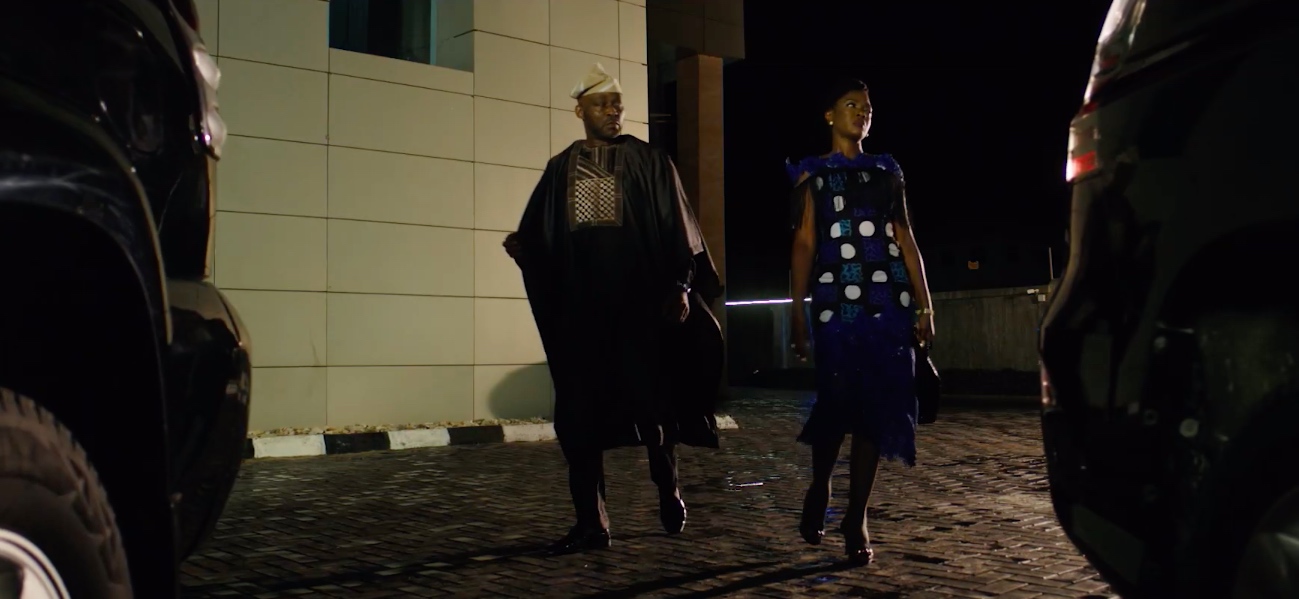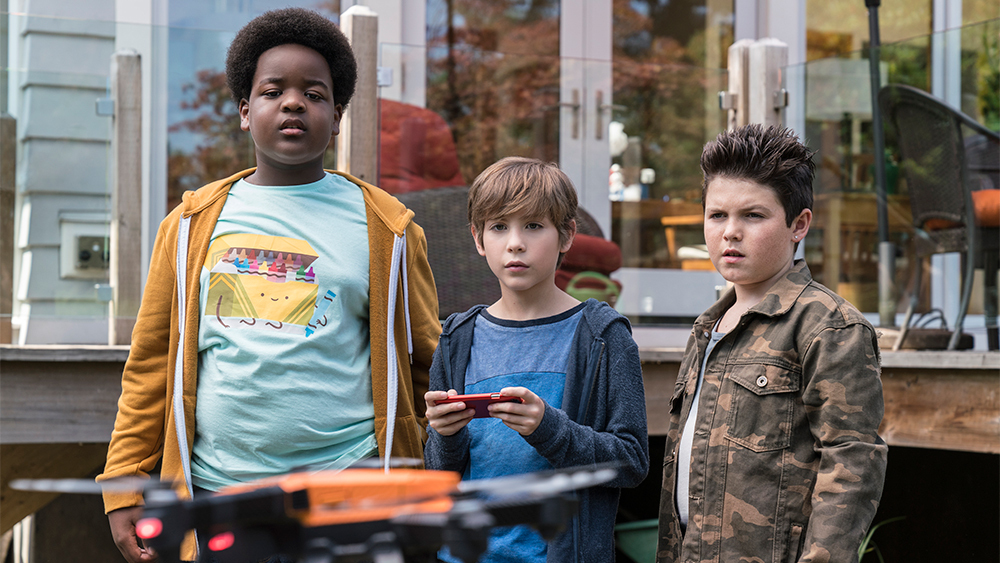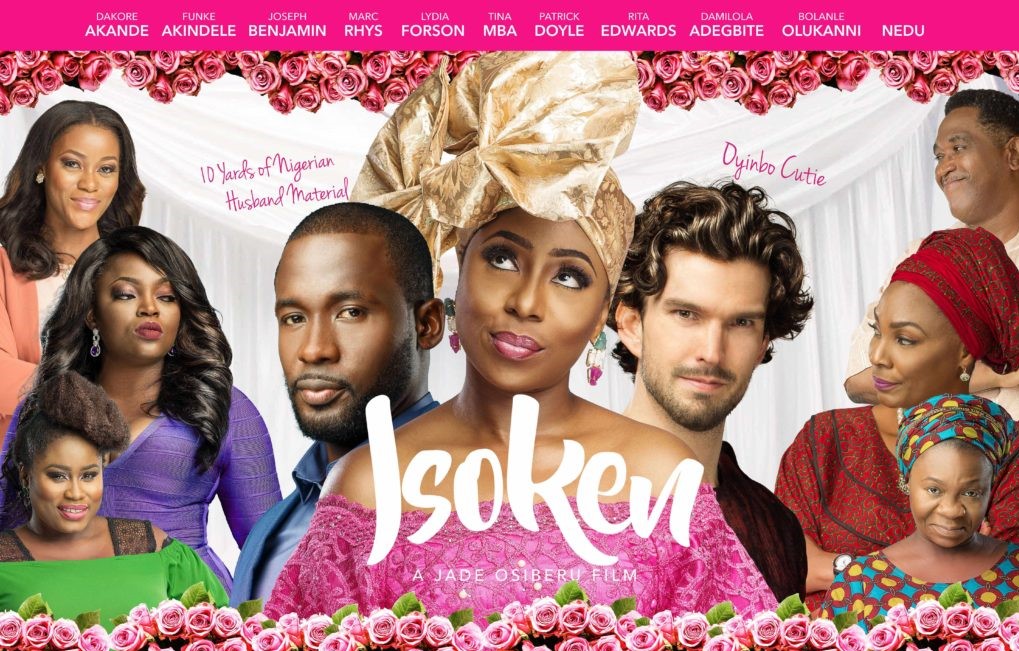Unlike “Wives on Strike” which was marred by production values, “Okafor’s Law” which was controversial, “Moms at War” which was immoral and left the audience wondering what its purpose was, Omoni Oboli‘s “Love is War” is unique and meaningful.
Oboli’s “Love is War” highlights corruption, the power tussle and the antics associated with Nigerian elections. However, it is unique because it is based on a deep-seated truth – a society increasingly motivated by tribalism.
What makes one an indigene of a state? Or worthy to be its ruling party’s flag-bearer? Is it birth, marriage or naturalisation?
In Nigeria, when there is an inter-tribal marriage, the husband’s hometown becomes his wife’s. Some women show commitment by learning their spouse’s language to fully integrate into his family. Others are given a nickname in their husband’s dialect as a show of complete acceptance. And so, when she dies, she is buried according to her husband’s wishes all signifying that she is a part of the tribe. These customs hold true in most parts of Nigeria until they become inconvenient as in the case of the protagonist in Oboli’s “Love is War.”
As with most of her films, Oboli plays the female lead, Hankuri Phillips. Hankuri is a minister. The president nominates her as the flag-bearer of the PPM party for the forthcoming Ondo State gubernatorial elections. She is well qualified for the job but she as stubborn as a mule because she will not play ball.
Oboli’s “Okafor’s Law” co-star, Richard Mofe-Damijo portrays Hankuri’s husband, Demiji Phillips. Demiji is a medical doctor and dotting husband. They have a daughter, Didi. The Phillips are a close-knit family living happily until Dimeji wins the nomination ticket for the opposing party, WDP. It is an awkward situation. Will the Phillips’s marriage survive this test? Hence “Love” not “politics” becomes war.
Oboli and Mofe-Damijo (RMD) share great onscreen chemistry. They also showed range in their acting. Where necessary, the cast added just the right amount of humour.
The premise of the film is perhaps its greatest strength. In the wake of Nigeria’s democracy, Nigeria has become ethnically charged and polarised. For decades, the “Federal Character” principle has played a major role in government’s decision of appointing office holders irrespective of qualifications. And like quota systems, the “Federal Character” principle aims to ensure diversity and inclusion of minority ethnic groups. Sadly, more often than not, the principle has been divisive because tribalism continues to rear its ugly head.
The film also explores family, love and betrayal. An experienced cast including Akin Lewis, Bimbo Manuel, Femi Branch, Jide Kosoko Shaffy Bello, Uzo Osimkpa bring it to life.
RMD must have drawn from his experiences as a politician to portray Mr Phillips. Similarly, Toke Makinwa. Her role must have come to her naturally. Ms Makinwa plays host of True Talk, a television talk show. It is a safe bet. But better so, if Makinwa is just testing the waters. William Benson and Yemi Blaq are strong supporting cast.
Oboli’s “Love is War” is original and authentic. She relied once again on the screenwriter of “Okafor’s Law” for her latest film’s screenplay. For the writer and director it is a win. One can also safely say that Onuzo is the man of the moment. Over the last two years he has done equally impressive work with the screenplays of other Inkblot Productions namely; “The Set Up,” “Up North” and “New Money.” No doubt these films were among the finest of Nollywood in 2018 and 2019. And little wonder, “Up North” and “New Money” will be streaming on Netflix in a matter of days.
Oboli’s film is visually appealing. And she achieves this with costume and production designs. Hankuri’s wardrobe is tasteful and could not be truer of Nigeria’s female politicians. The costumes used at the political rallies are colourful and just as apt. From campaign offices to stadia, the production designer, paid attention to detail.
Apart from a few cliché scenes like the opposing parties strutting into the venue for the debate, or a costume continuity error, it is difficult to fault this film. Oboli has done a good job wearing the hat of director and producer. She certainly corrected the shortcomings of her previous movies and she now has a film she can truly be proud of. “Love is War” is undeniably her best work yet.




